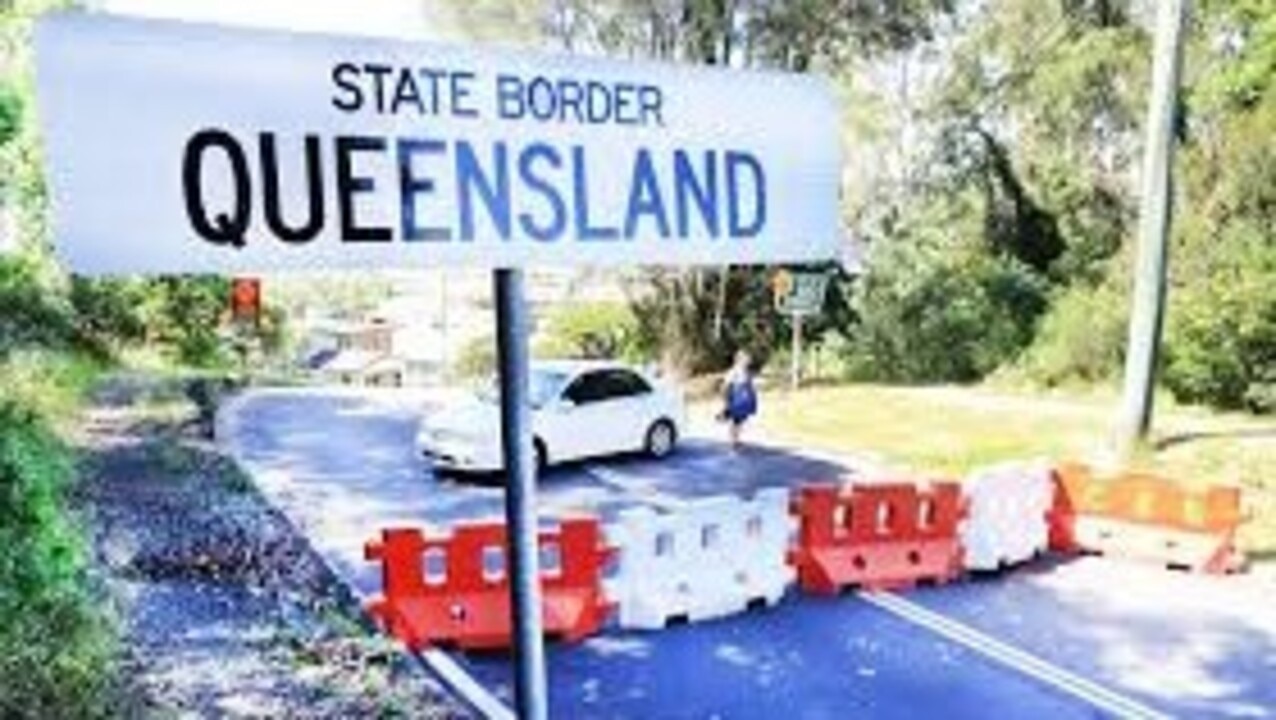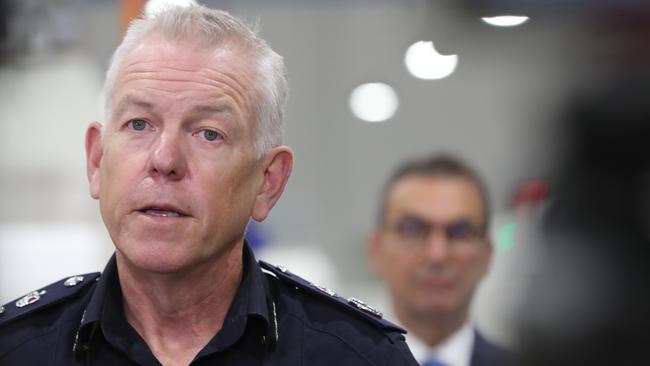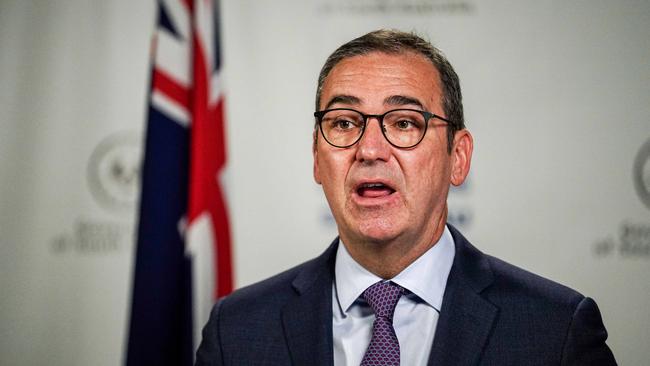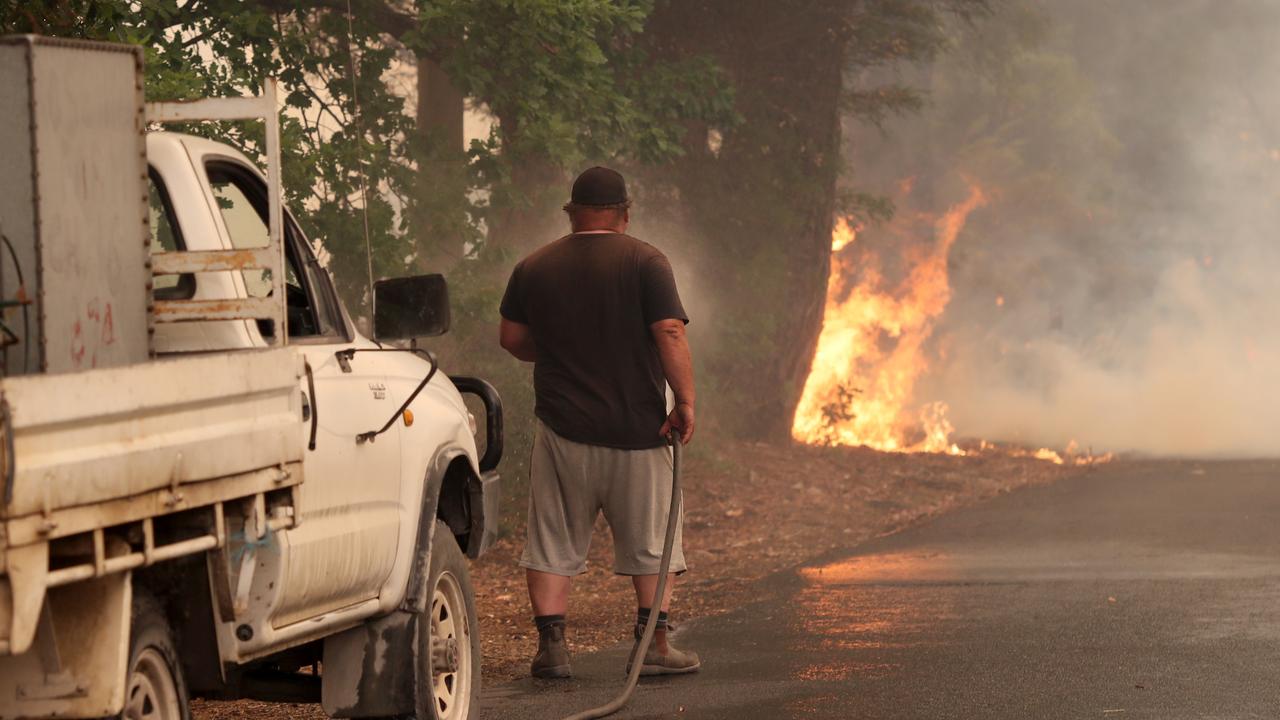SA Government considering new laws allowing snap border closures in post emergency world
The State Government is closely considering new laws that would still allow for snap border closures and using QR codes without being in a “state of emergency”.

Coronavirus
Don't miss out on the headlines from Coronavirus. Followed categories will be added to My News.
Snap border closures and the use of QR codes would still be allowed under a post-emergency COVID-19 plan being considered by the State Government.
South Australia’s state of emergency, which gives control of the state to the Police Commissioner, will this week be extended until the end of May.
Since March, Police Commissioner Grant Stevens has acted as the state co-ordinator under the Emergency Management Act, giving him sweeping powers to impose COVID restrictions.
The state of emergency will be extended until May 31 when parliament resumes today.
But The Advertiser was told yesterday the government is closely considering new legislation to take effect after the emergency declaration ends.

It would provide a legal framework that would give the government power to enforce snap border closures and even the use of QR codes if required, while no longer being in a “state of emergency”.
The Advertiser also understands the government will not support the permanent use of the QR check-in system beyond the COVID pandemic.
This was despite chief public health officer Nicola Spurrier throwing her support behind retaining QR codes permanently – a suggestion that business leaders said was a “bridge too far”.
Mr Stevens said QR codes were only in use for the duration of the pandemic.
“My commitment – based on advice – is that QR codes are in place simply and solely for managing COVID-19,” he said. “There is no intention to run QR codes for businesses beyond anything that.”
A government spokeswoman said SA’s handling of the pandemic was made possible due to the various border and internal restrictions, based on expert health advice.
“The extension of this Act means we can continue to respond as is necessary and protect the people of SA, with the legislative framework that supports measures such as hotel quarantine and border closures,” she said.
It comes as criticism mounts against the length of the emergency declaration, in place since March 22.
Premier Steven Marshall recently said the government was looking at other ways it could impose snap restrictions without being in a state of emergency.
“One thing that is for certain is that after this emergency is over, we will look very carefully at the Emergency Management Act in SA,” he said.
Mr Marshall said the Act was best used for events like bushfires and floods – not a long-term pandemic.

Law Society of SA president Rebecca Sandford said it was “critical” such laws were scrutinised, and recommended a parliamentary review into the existing emergency laws.
She said the emergency measures should be “proportionate to the risk” and that the public should be well informed about the rationale behind such laws.
SA Council for Civil Liberties president Professor Rick Sarre said he supported keeping the emergency declaration in place for as long as the medical advice justified it.
“We (the council) have no difficulty with those sorts of powers and if they think they need to have them on the backburner rather than pass new legislation, that’s fine,” he said.





